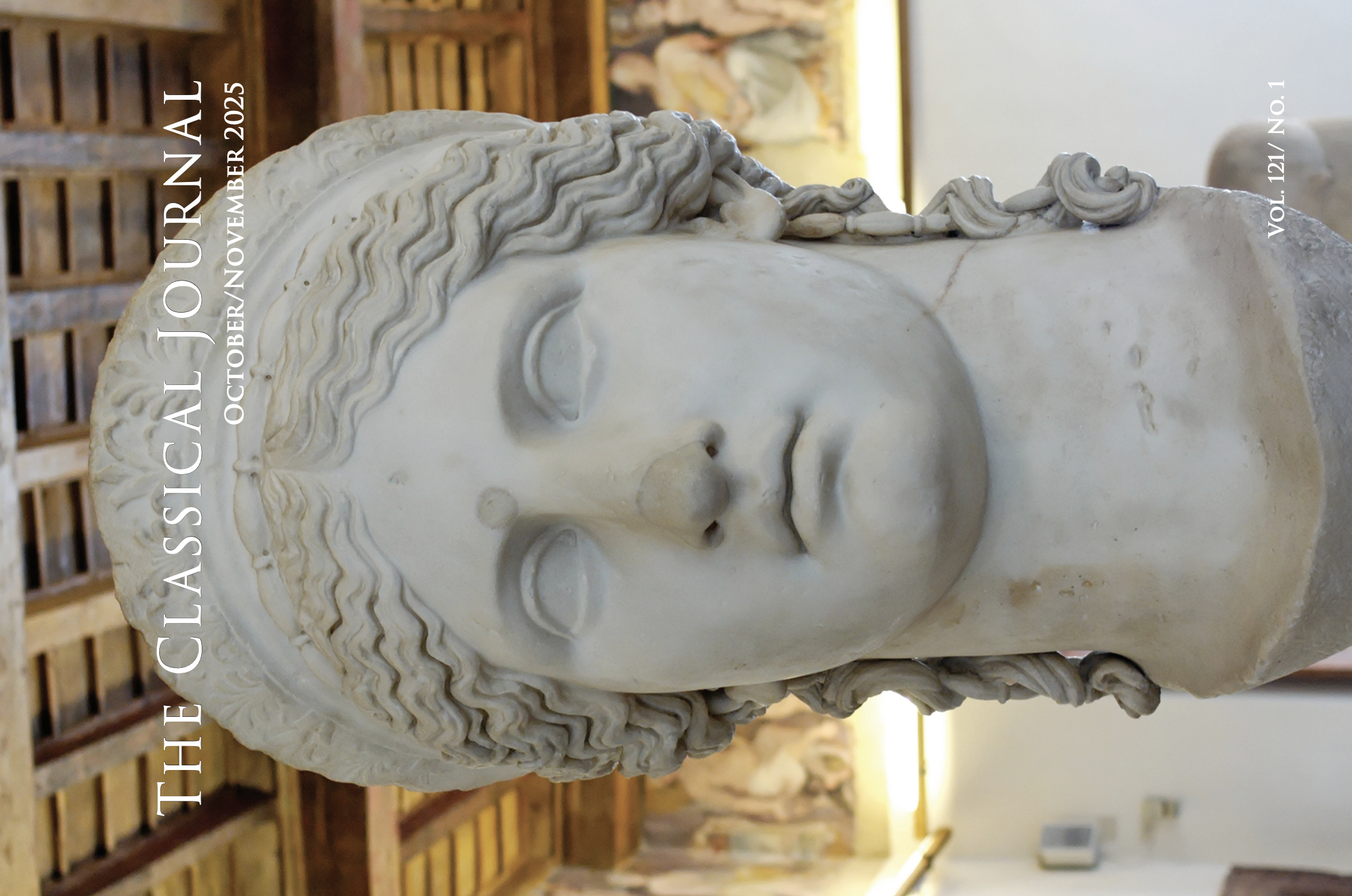The following articles are contained in CJ
114.2
Abstracts of Articles
Poets, Sophists and Philosophers AINIΤΤΟΜΕΝΟΙ in Plato’s Theaetetus
Platonic dialogues are full of poetic references. As well as revealing a vivid interest in, and acquaintance with, previous poetic works, Plato’s citations of the poets are also reflective of a widespread—but in Plato’s view reprehensible—4th century Athenian practice of treating poetry as a compendium of absolute and undeniable truths and of appropriating it only for self-serving purposes, instead of using it as a springboard for philosophical discussion. In this paper I restrict my attention to the Theaetetus with a view to scrutinizing the intricate and sophisticated ways in which Plato tackles not so much the cited poetic quotations and paraphrases per se, as their reception and handling by his contemporaries. More specifically, I examine three explicit Homeric citations (152e, 153c-d, and 194c). Although in all three cases Socrates embarks upon an allegorical interpretation of Homer, the authority that he allegedly lays upon his proposed readings eventually proves to be merely a masquerade. I suggest that as well as parodying the allegorical method of interpretation, Socrates’ treatment of the Homeric citations is also philosophically significant.
“Who Cares about the Greeks Living in Asia?”: Ionia in Fourth-Century Attic Oratory
In his On the Chersonese, Demosthenes challenges his audience with the question: “who cares about the Greeks living Asia?” (8.27). He implies that those who did were unpatriotic, but in doing so reveals that the Greeks of Asia were a concern in Athens to an extent that is not reflected in fourth-century sources. This paper investigates the corpus of works by the Attic orators, analyzing the relationships that can be established between Athens and Ionia based on references in the extant speeches. Behind Demosthenes’ rhetorical question is a robust Athenian discourse about Ionia shaped by the evolving political context in the eastern Aegean.
The Cyclopic Grotesque in Ovid’s Tale of Galatea and Polyphemus
As she recites the story of her courting by the hideous Polyphemus and re-sings his serenade, Galatea makes use of the creative power of visualization to conjure up his presence. She shows how alien he is to her world of beauty and love, but she lingers on his grotesque appearance and actions as her would-be lover. By such lingering, she demonstrates that he is not alien to the poet’s idea of poetry about love and beauty. The presence of the grotesque undermines the logical stability of poetry that considers the non-beautiful foreign to its aesthetic reception.


